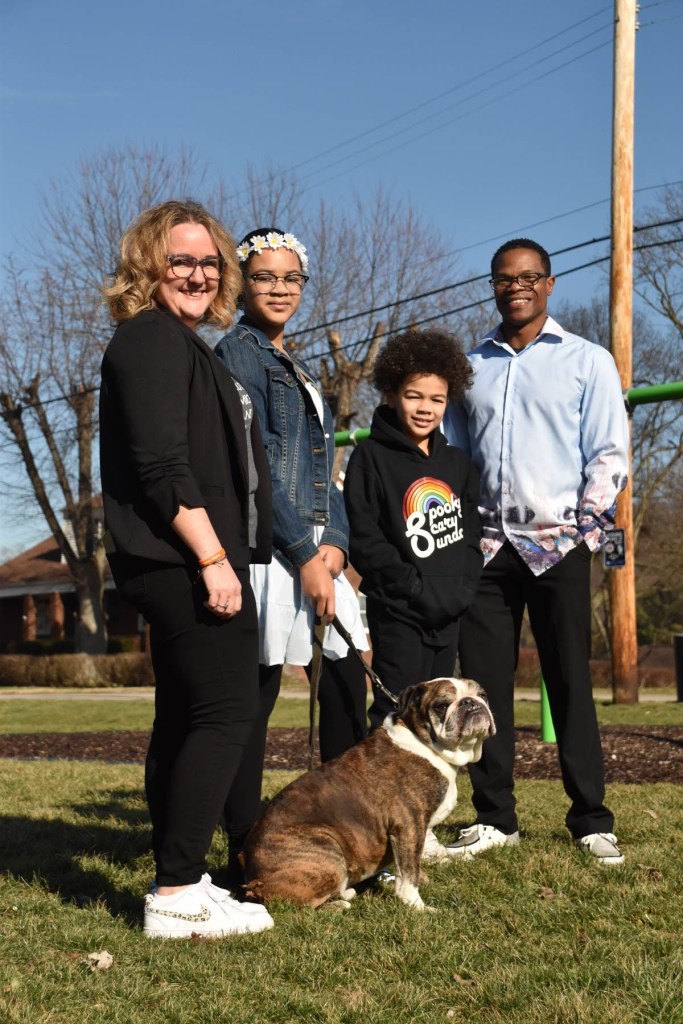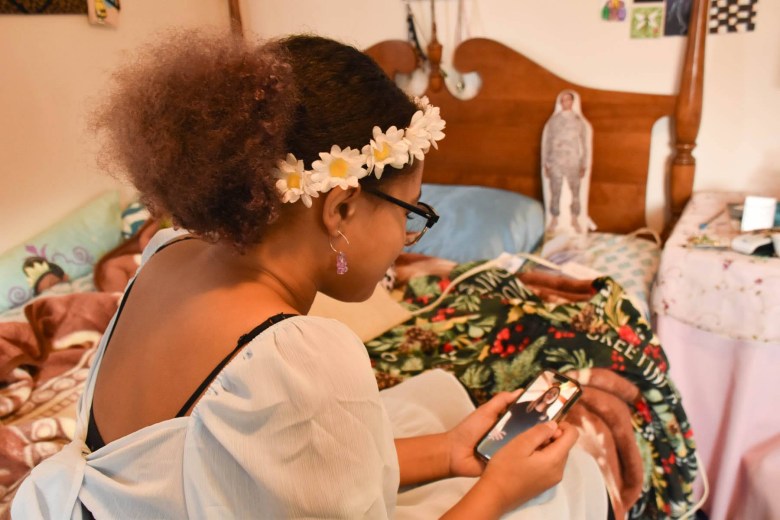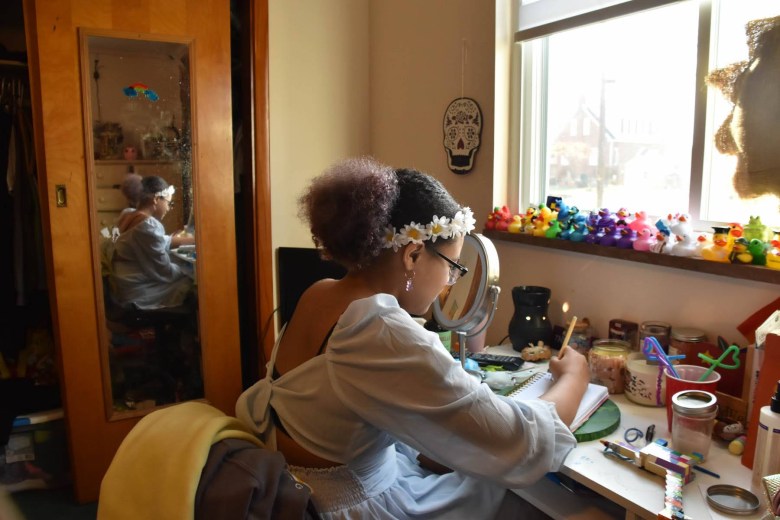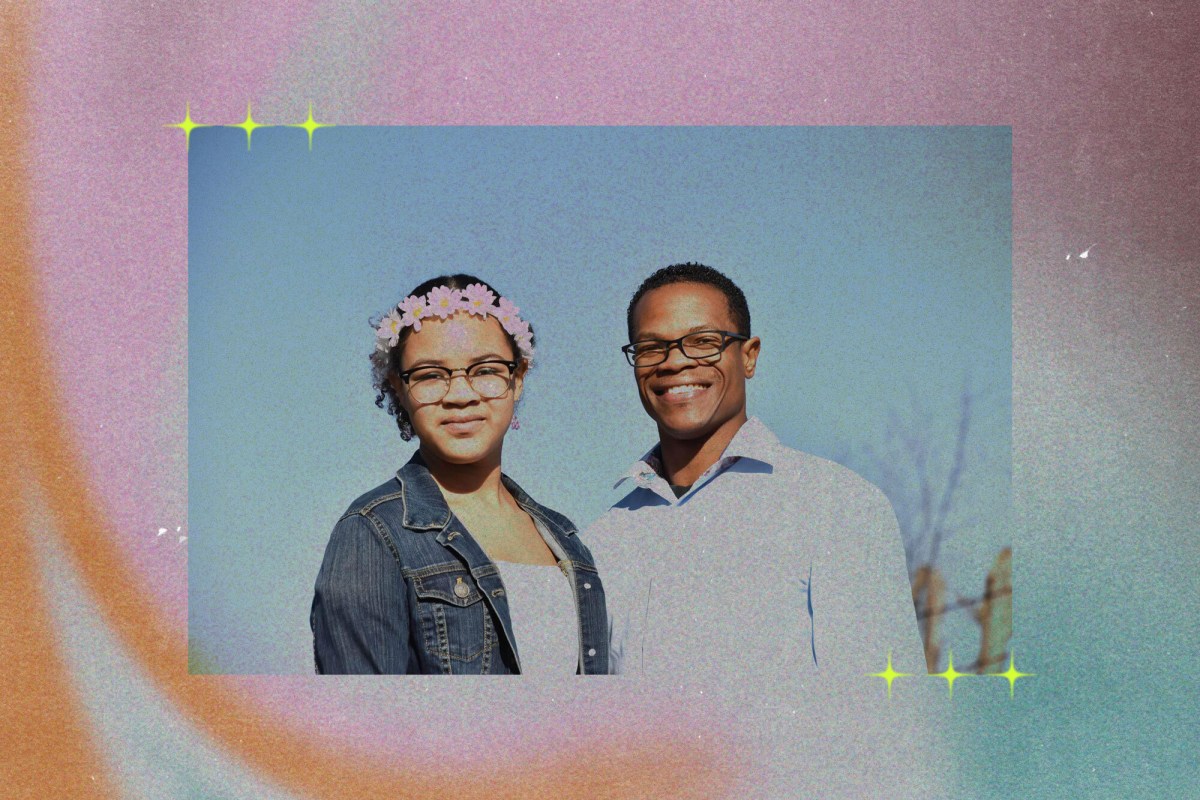In this episode of From the Source, Ambyr Clay discusses her experiences as a preteen coming of age in the era of police misconduct and protests captured on cell phone video and distributed widely on social media. Ambyr shares her observations on what her peers think about policing and the opportunity she sees for teens and police to have relationships that are beneficial to the community.
TRANSCRIPT
Jourdan Hicks: I am your host, Jourdan Hicks. This is the From The Source podcast. In this episode, eighth grader Ambyr Clay addresses her peers, parents and law enforcement on her ideas for improving what the public knows about policing and for improving teen and police relations.
She discusses her experiences as a preteen coming of age in the era of cell phones, police misconduct, protests, TikTok and Instagram.
Ambyr shares her observations on what her peers are thinking about policing, the opportunity she sees for teens and police to have relationships that are beneficial to communities and her experiences being the daughter of a police officer.
A note before we begin: This episode includes discussion of violence and acts of fatal negligence. Discretion is advised for when you listen, where you listen and who you listen with.
Ambyr Clay: My name is Ambyr Clay. I’m in eighth grade at Lincoln Park Performing Arts Charter School.
Jourdan: Ambyr lives with her mom, dad and younger brother .Ambyr is an artist and enjoys spending time outdoors.
Ambyr: Uh, I like the smell a lot and like the scenery, like the plants and flowers. My favorite color is green, so I like seeing all the different shades of greens.
Jourdan: At Lincoln Park, Ambyr studies writing and publishing as an arts major. Are your parents like creative people, like performance kind of people, or is it just you?
Ambyr: Yeah. My, uh, dad, he went to like an arts college, so he, he has a good eye for it.

Jourdan: Ambyr says she and her dad connect over art because he went to an arts college and she loves to create art in her free time.
When they spend time together, they do a lot of family stuff, like going on vacations, going out to eat, going to the movies. Dad is really, really silly and goofy, which makes it fun for Ambyr and her brother, Keegan.
Ambyr: Having a police officer as a dad makes me happy and proud, but sometimes I have some fears.
I sometimes fear that one day something will happen to him. I won’t see him again. It makes me happy that he is protecting others, but I wonder who protects him when he is protecting others.
Jourdan: But there’s one topic Ambyr is cautious to engage in.
News clip: The Los Angeles Police Department has released body cam footage showing its officers tasing Keenan Darnell Anderson.
On Jan. 3, police say Anderson, a teacher and father, died at a hospital after he suffered a medical emergency about four hours after he was arrested.
News clip: Turning to another story that we have been following all evening, the death of Brackenridge Police Chief Justin McIntyre. He was shot and killed late this afternoon in a confrontation with a suspect. That suspect was later killed in a shootout in Pittsburgh
Jourdan: Two years ago, when Ambyr was 11 years old, George Floyd’s murder by a Minneapolis police officer made international news. It’s hard for her to remember a time before having to have uncomfortable conversations about policing, discrimination and racism.
When the media picks up stories involving officer-related shootings or police fatalities, Ambyr knows there’s a chance the topic of policing may make it into her lunchroom discussions. Her father is a police officer. It’s something Ambyr and her family are very proud of and something she doesn’t share with just anybody.
Do you typically tell people your, your dad is a police officer or are you private with that information?
Ambyr: With, like, my friends and stuff, I’ll, like, I’ve told them that like my dad’s a police officer and stuff. If I feel like I need to bring it up, I’ll bring it up, but like if I don’t feel like it needs to be brought up in the moment or this person doesn’t really need to know that information then, like I won’t, most of the time I don’t think about it. Sometimes I won’t share that information. Like, not really that’ll put me in danger, but like, it’ll make like the situation like uncomfortable ’cause I know not a lot of people like to talk about that topic.
Jourdan: So we have three groups that we’re gonna talk about. We’re gonna talk about your peers, people who are your age, young adults, teens. Then we’re gonna talk about some of the things your dad has experienced and some of the things that he shared about being a police officer. Then we’re also gonna get your personal opinion, as someone who’s in the middle, who’s both a young person and who has someone who they live with, that they love, who is a police officer.
So let’s start with your friends and people who are your age. What would you say are some common beliefs that your peers think are true or, um, hold about police officers. Like how are they talking about them? What do they think about them? What are they, what are they saying?
Ambyr: So I talked to my friends at lunch about this question to get some of their opinions and some of the things like were, um, that cops should get more education on mental health. A lot of teens think that cops are bad because, um, of what they hear or see on social media and that they, there should be some like stricter rules on who should be like a cop.
Jourdan: OK, so there should be stricter rules on who can be a police officer, that police officers need more training to be able to deal with issues in the public that aren’t criminal in nature. Then the third is that police officers are seen as bad or untrustworthy.
Jourdan: Ambyr values police officers for the protection they provide to vulnerable people and vulnerable communities. She believes without police officers. The public loses access to helpers who respond to conflict, violence, and lawlessness.
Ambyr: Yes. I think police officers are useful because without them, like the world will just go into chaos because no one’s like stopping people from like doing wrong. If we didn’t have police officers, there would be, like, not really protection. We’d have to mostly rely on ourselves to protect us when not everyone can do that.
Jourdan: Ambyr’s at the age where she’s beginning to develop her moral compass and the foundation for her beliefs about the world, which like most of us are inspired first by our family and our community.
Jourdan: What types of interactions have you had with police? What do you see police doing in your neighborhood?
Ambyr: So at my school, we actually have two police officers that stand around and well, like, I see, um, cops doing like standing there and making sure that, like, we’re safe until like they need to step in to help us. Normally when I see, like, police at my house, they’re just, um, driving around and like making sure nothing bad’s going on, or like, sometimes they’ll go to a house by me if someone’s like hurt or something. I haven’t really seen anyone go to a house where someone was doing, like, something bad there.

Jourdan: Give me the characteristics of your ideal police officer.
Ambyr: Someone who will, like, respect and want to do the job to protect and serve their community, to do what’s right and like someone who will be OK to step in to, like, an argument or step into danger knowing that they’re there to help.
Jourdan: So brave, understanding and ready to help.
Ambyr: Yeah.
Jourdan: What type of police officer do you hope that your dad is to people?
Ambyr: I hope he’s one that is like doing what’s right and is treating people with, like, equal respect and equality.
Jourdan: Have you and your dad had conversations about his work as a police officer
Ambyr: sometimes?
Jourdan: What things have you talked about?
Ambyr: That cops should get more education on mental health. Because my dad said like one outta every 15 calls that he gets deals with mental health cases, and they didn’t really learn about that. So for like police academies, I think there they should have lessons about mental health and like with teens because my dad said they didn’t when he was in police academy, they didn’t really even talk about that that much.
I definitely say like the George Floyd that I realized that there are some police officers out there, they’ll sign up and like train to be a police, but not actually do what’s right or not, ike, respect people with, like, equality. I have a vague memory of, like, him telling us about it and telling us how like not all police officers are like that.
There wasn’t really a way that we could, like, check to make sure that the cops that people hire are, are gonna do their job correctly. I think so far that my, like, thought about police is like where it needs to be. I think like down the line, I’ll learn more about police that may \ change that opinion and may, like, alter how I see policing.
Jourdan: Is there anything specifically in your mind that you would like to learn more about or you feel like you will learn more about as you get older?
Ambyr: Stuff I’d like to learn more about is what they do in training and like what’s the actual requirements and like what tests they need to go through to be certified as a police officer.
Jourdan: Ambyr says everyone is going to have to interact with police at some point, and teens should be prepared. She says it’s on parents and schools to give kids solid information upon which to base their own opinions.
Jourdan: So, educators and schools to be more, can be more prepared toalk about issues and things that have to do with policing and stuff.
Ambyr: Parents should talk about like what’s the correct way to respond to an interaction with the police and like answer their, like, if they have questions like, how to answer them with the most respect and that if you feel unsafe, that it’s OK to ask to call your parents, especially if you’re a teenager or it’s OK to like record if you feel uncomfortable or unsafe.
Jourdan: By the same token, Ambyr thinks police should educate themselves about.

Ambyr: Cops should listen to this because some may not know how teens feel about policing and by listening to this, they’ll, they can get like a good understanding on why some teens may act like this around them or like why some may feel this way.
Jourdan: Encounters with police can be stressful and they can escalate fast. There are local organizations like A.P.A, the Alliance for Police Accountability, the local ACLU – American Civil Liberties Union chapter, and 1Hood that offer programs and explainers on what the law requires of you when you’re encountering police and strategies for handling police interactions. You can visit their websites by clicking the links we’ve provided in the transcript for this episode.
Joudan: Thanks for listening.
Season four of From The Source Podcast is produced, reported and hosted by me, Jourdan Hicks. Halle Stockton is our editor-in-chief. Story editing, sound design and mixing by Liz Reid of Jeweltone Productions.
We continue to interview young people for the podcast as we speak. If you’re curious to learn how you can share your story with us, or nominate a young person, ages 13 to 18 to appear on an episode of From the Source, you can get in touch with me by sending me an email to jourdan@publicsource.org.
PublicSource is an independent nonprofit newsroom in Pittsburgh, Pa. You can find all of our reporting and storytelling at Publicsource.org.
I’m Jourdan Hicks. Stay safe. Be well.






